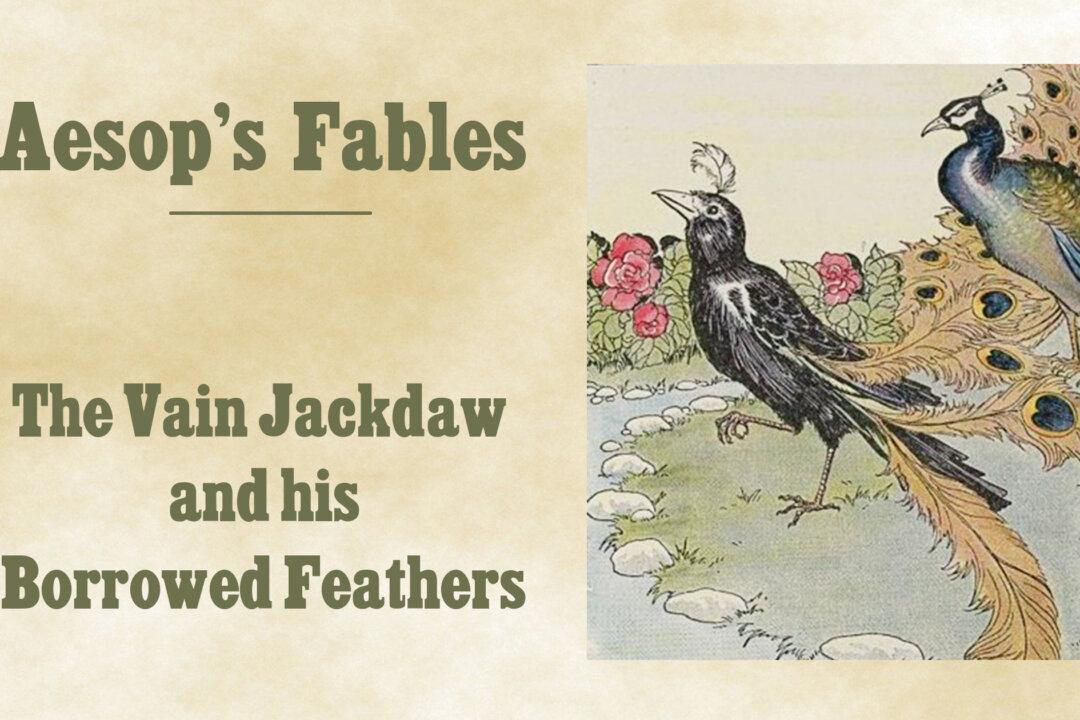A Jackdaw chanced to fly over the garden of the King’s palace. There he saw with much wonder and envy a flock of royal Peacocks in all the glory of their splendid plumage.
Now the black Jackdaw was not a very handsome bird, nor very refined in manner. Yet he imagined that all he needed to make himself fit for the society of the Peacocks was a dress like theirs. So he picked up some castoff feathers of the Peacocks and stuck them among his own black plumes.






